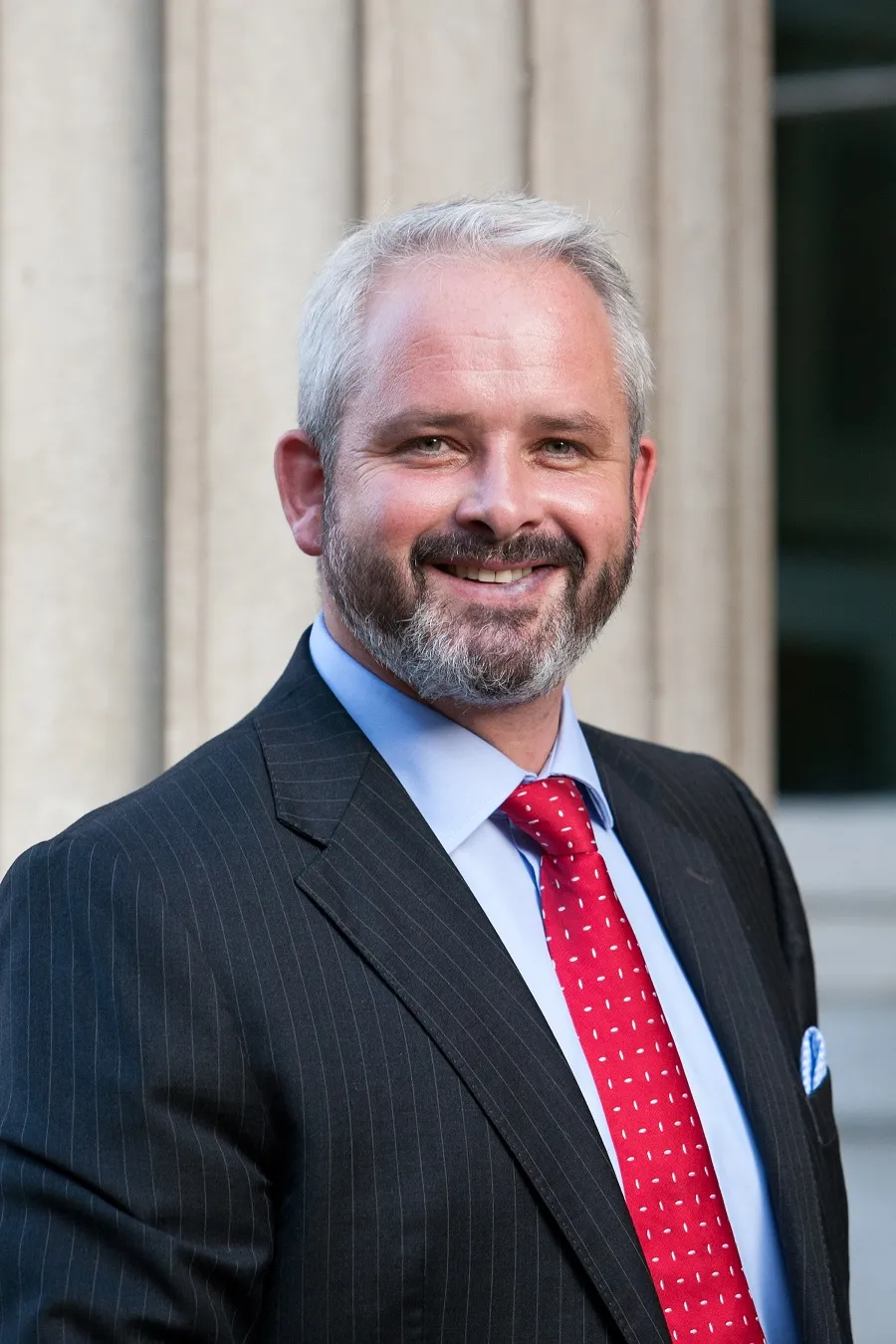How David Hammond founded Human Rights at Sea
David has enjoyed an extraordinary career in many parts of the maritime industry. He started in a bridge watchkeeping role in the Royal Navy and later moved to the Royal Marine Commandos, working in helicopter pilot and command roles. Next he was selected to train as the first Marines’ Barrister-at-Law (Counsel), focusing primarily on criminal law, and completing additional training in maritime and public international law.
“Appointments included engagement with the maritime industry as well as the oil and gas sectors from a counter-piracy and regional security perspective, primarily in the wider Gulf region,” David recalls. This gave him the opportunity to advise senior law personnel on the Law of the Sea, International Humanitarian Law and International Human Rights Law.
“Throughout this period, I had a core interest in the correct application of justice, the rule of law and access to fundamental rights, as well as representing those less fortunate,” David says.
His first-hand experience has informed that passion. David has lost colleagues and seen the many workers forego basic rights. “I was aware that my future lay in helping to address failures in justice, social welfare and human rights development, ensuring that those without a voice had one,” David says. His empathy and concern led to the vision for an independent civil-society platform. He explains that the core philosophy is, “Human rights apply at sea, as they do on land”.
By 2013 David was committed to setting up HRAS and through his network of maritime experts, he has sought to drive significant change. “Our mission is to explicitly raise awareness, implementation and accountability of human rights provisions throughout the maritime environment, especially where they are currently absent, ignored or being abused,” he says.
Challenges and opportunities
David’s undertaking has not been without its challenges. “In maritime law the explicit use of the term ‘human rights’ is limited, which effectively goes against any immediate reliance on legal justifications underpinning maritime CSR and ESG work relating to human rights,” he explains.
He points out that historically the industry’s focus has been on labour rights, but it has neglected fundamental rights outlined in the 1948 Universal Declaration on Human Rights and the 2011 UN Guiding Principles on Business and Human Rights.
By March 2019, David and his team had identified the key gaps in international law. “We brought together some of the leading academics on the subject matter to start drafting and develop the Geneva Declaration on Human Rights at Sea,” he explains.
The goal is for HRAS to take the document to the UN Human Rights Council with the ultimate aim of ratification.
How RightShip will help HRAS achieve its objectives
The new partnership between RightShip and HRAS provides many opportunities. According to David there is potential to “Drive improved business behaviours, expanding levels of transparency in-sector and to act as part of the DNA of aspirational and incentivised systems for enhanced safety management systems at sea.”
As RightShip has a strong commitment to seafarer welfare, it was the perfect way to support an organisation with the knowledge and commitment to enforcing international laws at sea. “This alliance has the opportunity to deliver long-term change by doing what is right,” David says.
David suggests that while HRAS approaches institutional change from a charity mindset, “Profit can still be made, shareholders satisfied, and workers protected.” He adds that working with RightShip allows his organisation’s charitable structure to be enabled through business, not restricted by it. “Every level of the supply chain has to be engaged as a collective effort,” David says. When the industry takes a holistic approach, he believes we can improve training and education and initiate remediation when human rights abuses occur.
Priorities and progress
While the maritime industry faces several seafarer welfare concerns, this has been amplified during COVID-19. HRAS has been inundated with requests for support for those facing issues such as: social exclusion, availability and use of PPE, access to welfare support, and requests by crews to take up their cases in challenging unsafe practices which could expose them to the virus.
These unprecedented concerns have highlighted a need to support seafarers now. “What we now want to see is their fundamental human rights properly recognised. After all, without them there would be no multi-billion-dollar maritime industry,” David says.
David says there are many priorities, including: better individual and public awareness of applicable fundamental rights, public acknowledgement that human rights apply at sea as they do on land, businesses embedding the philosophy throughout business practices and reporting on it and state-level leadership as human rights protections are a state responsibility in the current rule of law.
David is optimistic about making strong progress together. “We look forward to seeing the results that the ripple effect our partnership with RightShip will bring,” he says.
Similarly, RightShip is pleased to be working with David’s committed and passionate team to drive change.
“When you have been privileged to receive such training and wide-ranging experience, it is simply wrong to be selfish with it when others could benefit. Money does not drive me; social change does,” he concludes.
